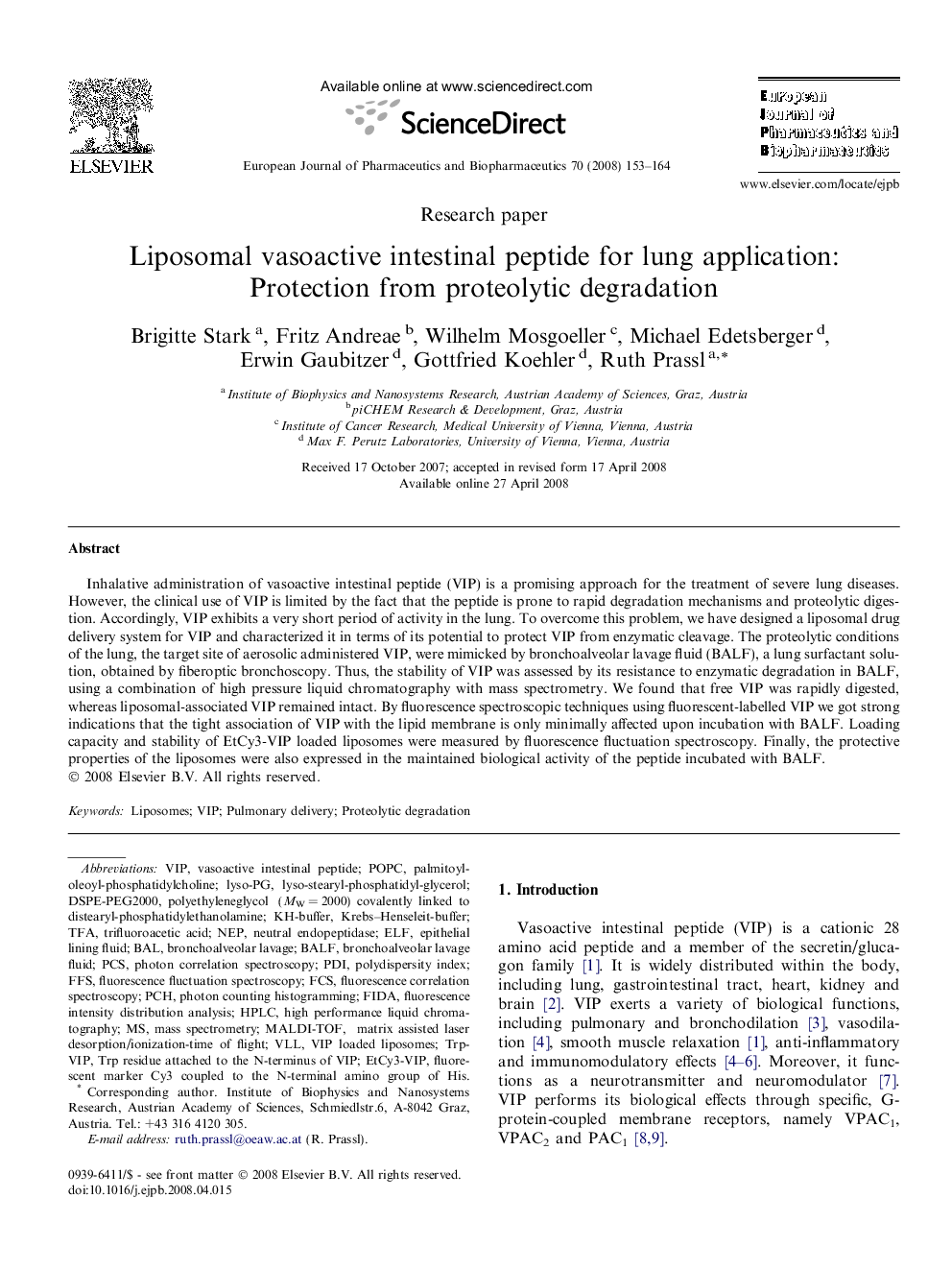| Article ID | Journal | Published Year | Pages | File Type |
|---|---|---|---|---|
| 2084709 | European Journal of Pharmaceutics and Biopharmaceutics | 2008 | 12 Pages |
Inhalative administration of vasoactive intestinal peptide (VIP) is a promising approach for the treatment of severe lung diseases. However, the clinical use of VIP is limited by the fact that the peptide is prone to rapid degradation mechanisms and proteolytic digestion. Accordingly, VIP exhibits a very short period of activity in the lung. To overcome this problem, we have designed a liposomal drug delivery system for VIP and characterized it in terms of its potential to protect VIP from enzymatic cleavage. The proteolytic conditions of the lung, the target site of aerosolic administered VIP, were mimicked by bronchoalveolar lavage fluid (BALF), a lung surfactant solution, obtained by fiberoptic bronchoscopy. Thus, the stability of VIP was assessed by its resistance to enzymatic degradation in BALF, using a combination of high pressure liquid chromatography with mass spectrometry. We found that free VIP was rapidly digested, whereas liposomal-associated VIP remained intact. By fluorescence spectroscopic techniques using fluorescent-labelled VIP we got strong indications that the tight association of VIP with the lipid membrane is only minimally affected upon incubation with BALF. Loading capacity and stability of EtCy3-VIP loaded liposomes were measured by fluorescence fluctuation spectroscopy. Finally, the protective properties of the liposomes were also expressed in the maintained biological activity of the peptide incubated with BALF.
